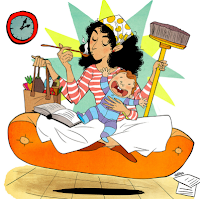What are your ambitions for your writing career? I suppose like many authors, to try and be successful. Whether that will happen or not is outside of my control, so the best thing I can do is create realistic stories to share with others.
Which writers inspire you? Tom Clancy, Dan Brown, Clive Cussler, Brad Thor, David L.
Golemon, Robert Crais, Jack Du Brul, and Mark Greany, to name the major ones.
So, what have you written? The Kurdish Connection is my
debut novel and is the first in a four-book series. I took the first chapter of another book I
was working on, cut it to 399 words, and submitted it to a monthly competition held by
Wildsound Writing and Film Festival Review. My entry, called A Dangerous Occupation,
was one of the winning entries in August 2016. It’s read by a profession actor at this Youtube link. Another short
story, Postal Man, was recently chosen for the January members’ writing and art section
Give us an insight into your main character. What does he/she do that is so special? I
really have two main characters in The Kurdish Connection, Craig Cameron (referred to
as CC) and Dersim Razyana. CC was born in Scotland but eventually raised in America
and leads the Bedlam Alpha team after a long stint in the military. Dersim is an Iraqi
Kurd, a family man and scavenges to earn a living. His dream of an united Kurdistan
leads to various perils but a change of heart returns him to a level-headed individual
concerned about taking care of his family.
What are you currently working on and what is it about? I have three other novels
underway. The first is Dangerous Alliance, the sequel to The Kurdish Connection. This
one involves the North Koreans and Al-Shahbab, a Somali terrorist group. To counter the
alliance is Bedlam Bravo who will try to stop the transfer of oil and weapons, as well as
rescue a well-known hostage. The second ongoing book is called A Cartel’s Revenge,
and involves a cartel headed by a woman. She makes an unusual alliance with FARC,
not realizing ISIS will soon be involved. Working against her are a CIA agent and an
Army colonel. The third book, which will take some time to finish, is historical fiction. It
begins in 1770 with a tenant farmer and his family. After crop failures, they receive a
lifeline and head to America, arriving in time to be caught up with the Boston Tea Party
and the beginnings of the Revolutionary War.
What drew you to write in this genre? Probably the authors that I like to read. One thing
of interest is many readers of The Kurdish Connection like mysteries, crime, and even
romance, so there’s obvious appeal across genres.
How much research do you do? It really depends on what I need. Whenever possible, I
include personal travels and experiences. When this is insufficient I spend the time to
research either through the internet or purchasing books to gather the necessary
background to continue creating my stories.
When did you decide to become a writer? It wasn’t something I ever thought of doing.
Just before I retired, a long-time colleague suggested I try writing a novel. The Kurdish
Connection is the result.
Do you write full-time or part-time? I write part-time.
How often do you write, and do you have a special time during the day to write? Since
I’m an early riser and my wife isn’t, I spend an hour or so in the morning and then
perhaps two hours in the evening. This time isn’t just for writing, but covers research,
too.
Do you aim for a set amount of words/pages per day? No. I know a lot of writers who do
this. Perhaps they’re better at writing than I am but I’d rather put time in to create what’s
needed for my stories rather than try to rush against a word count.
Do you write on a typewriter, computer, dictate or longhand? I use a computer but once
in a while I’ll jot things into my phone or even on a piece of paper if my computer isn’t
Available.
Where do the your ideas come from? They come from a variety of places, paying
attention to the news and even other writers. A Cartel’s Revenge, mentioned above, is
based on three sentences someone sent me to see what I could do with them. I have
two other novels planned that are based on suggestions sent to me but I need to
complete the others before working on these.
Do you work to an outline or plot or do you prefer just see where an idea takes you? I
prefer to use an outline. I begin with a draft synopsis so I have an idea where I’m starting
and where I want to go. The initial chapters are identified but things changes as the
stories unfold, which can change the number and order of my chapters.
What do you do for fun? In addition to writing, he enjoys hiking, reading, candle making, pyrography, and sightseeing.
Bloggers, that is all the time we have for today. Find more about Randall and his upcoming stories on his blog randallkrzak.com.
 Joining me today is author, C.D. Gallant-King. C.D. was born and raised in Newfoundland and currently resides in Ottawa, Ontario.
Joining me today is author, C.D. Gallant-King. C.D. was born and raised in Newfoundland and currently resides in Ottawa, Ontario. 








